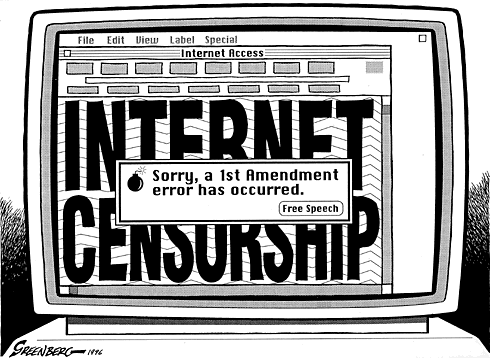How Censorship Affects Us
December 18, 2017
Back in June, Germany passed legislation that would allow it to fine social-media companies up to $57 million if they fail to delete hate speech, libel, illegal comments and posts according to the Wall Street Journal.
After refugees poured into Germany back in 2015, Germany saw a rise in racist comments and anti-immigrant language, ultimately being one of the factors for this legislation’s creation.
The legislation is meant to ensure that companies decide on flagged as offensive content within seven days. If companies fail to address complaints persistently, they could be fined up to $57 million. Companies also have to report how they handle their complaints publicly.
With the law illustrating Germany’s position as “one of the most aggressive countries in the Western world” at forcing social media companies to crack down on hate speech on digital platforms, issues arise as this conflicts with rights to free speech and expression (nytimes).
Companies such as Facebook and Google have been taking steps to limit extremist content and “fake news,” through artificial intelligence and banning news sites believed to spread fake or misleading reports.
This legislation could become a model for other countries such as the United States and may harm human rights if it is not challenged.
The debate on net neutrality and President Trump’s attacks on many news outlets such as CNN also drive the fear that censorship could become very real for our country. Without free speech, governments can participate in “censorial abuse” according to Yale Law Journal.
It is important to stand against net neutrality and to stand with journalists. Journalism is essential in order to stand up for those who can’t stand up for themselves, bring out the truth, and create a difference. Censorship leaves issues unreported and does not truthfully tell the facts.





















